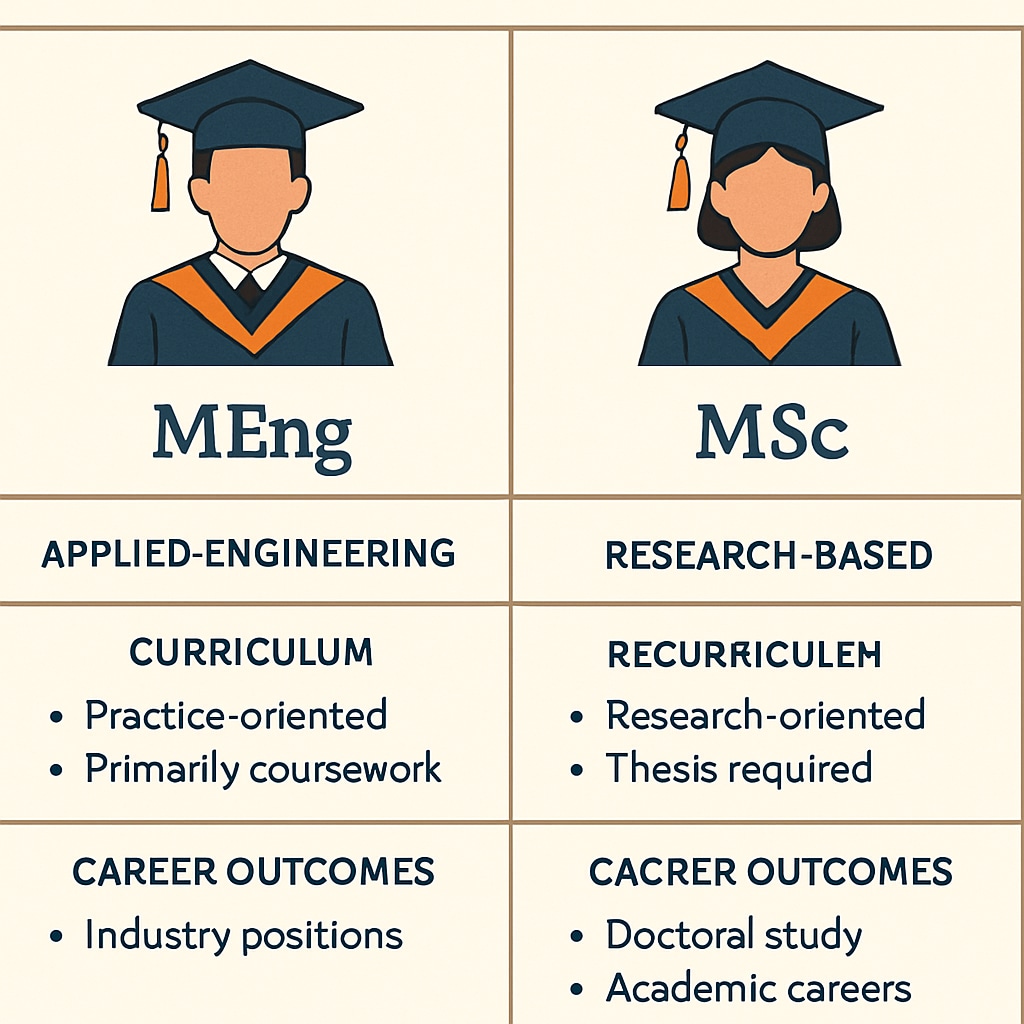Choosing the right degree in design engineering significantly impacts career competitiveness in today’s evolving job market. For students, the foundation laid during K12 education plays a crucial role in shaping their academic and professional pathways. By fostering long-term planning skills and career judgment from an early age, educators can help students navigate pivotal decisions, such as selecting between Master of Engineering (MEng) or Master of Science (MSc) programs.

The Influence of K12 Education on Design Engineering Aspirations
K12 education serves as the cornerstone for developing an interest in STEM (Science, Technology, Engineering, and Mathematics) fields. Early exposure to design engineering concepts through hands-on projects, robotics clubs, and interdisciplinary learning equips students with the curiosity and skills necessary for higher education. For example, project-based learning not only enhances problem-solving skills but also introduces students to the practical applications of engineering principles.
Moreover, guidance from educators and counselors during this stage can help students align their strengths and interests with potential career paths. By understanding the nuances of various engineering disciplines, such as design engineering, students can make informed choices about their undergraduate and graduate studies.
According to a Britannica article on engineering, developing technical and analytical skills early in life is critical for success in specialized fields like design engineering.
Choosing Between MEng and MSc: Factors to Consider
For students pursuing higher education in design engineering, choosing the right degree—MEng or MSc—can be challenging. While both programs offer advanced knowledge and skills, their focus and career outcomes differ.
- MEng (Master of Engineering): This degree is typically more practice-oriented, emphasizing applied engineering skills. It is ideal for students aiming for direct entry into the workforce or leadership roles in engineering projects.
- MSc (Master of Science): Focused on research and theoretical knowledge, this degree is better suited for students interested in academia, research, or specialized technical roles.
Understanding these differences is crucial, as the choice between MEng and MSc can influence career trajectories. For instance, an MEng graduate might secure a position as a design engineer in a manufacturing firm, while an MSc graduate might pursue a research role in materials science.

How K12 Education Prepares Students for Degree Decisions
To ensure students are ready for these critical decisions, K12 education must emphasize the following areas:
- Career Exploration: Offering career days, internships, and mentorship programs exposes students to real-world engineering environments.
- Critical Thinking: Encouraging problem-solving and analytical skills through STEM activities prepares students for the complex challenges of higher education.
- Soft Skills Development: Communication, teamwork, and adaptability are essential for success in both academic and professional settings.
- Academic Counseling: Providing personalized guidance helps students understand their strengths and align them with potential degree pathways.
For example, a high school robotics competition could inspire a student to pursue design engineering, while a career seminar might clarify the distinction between MEng and MSc programs.
The Long-Term Impact on Career Competitiveness
Ultimately, the decisions made during K12 education and higher education significantly affect career competitiveness. Employers value candidates who demonstrate not only technical expertise but also the ability to adapt and innovate. By fostering these qualities early on, students can build a strong foundation for professional success.
In addition, degree choices influence access to specific job markets. For instance, industries like automotive design or aerospace engineering may prioritize MEng graduates for their practical skills, while research institutions might prefer MSc graduates for their theoretical expertise.
As noted in a Wikipedia entry on engineering education, the combination of technical knowledge and real-world application is vital for thriving in competitive industries.
By integrating comprehensive career planning into K12 education, educators ensure that students are equipped to make informed choices and excel in the dynamic field of design engineering.
Readability guidance: This article uses short paragraphs, clear headings, and lists to enhance readability. Transitions like “for example” and “as a result” ensure smooth flow, while the emphasis remains on actionable insights for students and educators.


